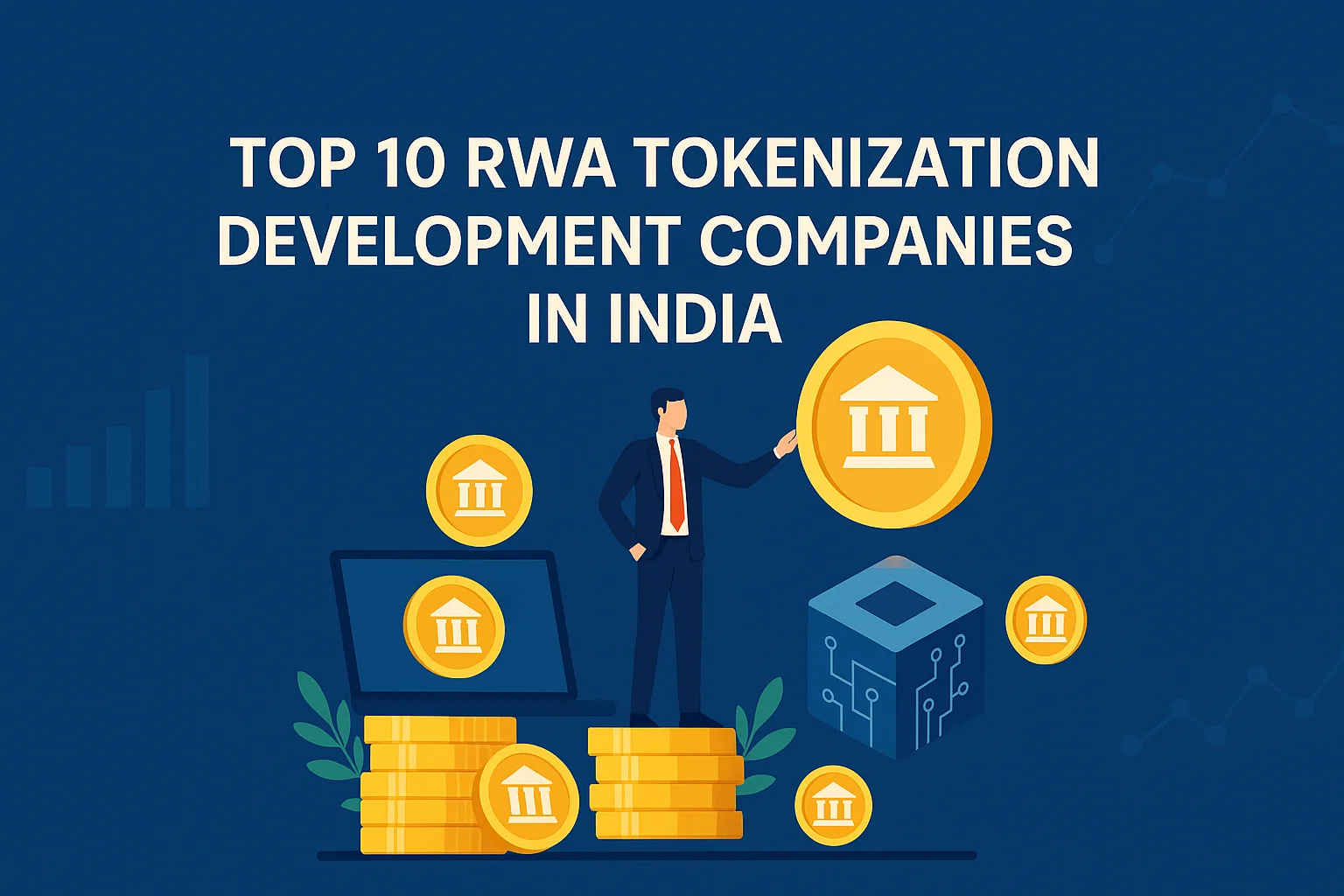The rapid growth and adoption of cryptocurrencies have made cryptocurrency exchanges a cornerstone of the global financial ecosystem. The importance of security in cryptocurrency exchanges as digital assets become increasingly mainstream, more individuals and institutions are looking to invest in or trade cryptocurrencies. This surge in interest has led to the proliferation of cryptocurrency exchanges, making it easier than ever to create your own cryptocurrency exchange 2 days. However, as the number of exchanges increases, so do the security challenges that come with them. Ensuring the safety of user funds and personal information has become a top priority for anyone looking to build your own cryptocurrency exchange.

Overview of the Growing Popularity of Cryptocurrency Exchanges
From 2023 to 2031, the cryptocurrency exchange sector is expected to see substantial expansion.
By 2028, the worldwide market for cryptocurrency exchanges is anticipated to have grown from its 2022 valuation of $341,890.21 million, a compound annual growth rate (CAGR) of 20.25 per cent.
Several variables contribute to this expansion, including new market entrants, shifting consumer preferences, the regulatory landscape, macroeconomic conditions, and technology advancements.
Bitfury Group Limited, Ripple Labs Inc., BitGo, Bitstamp, OKEx, Coinbase Inc., BitPay Inc., Circle Internet Financial Limited, and Unocoin Technologies Private Limited are some of the prominent companies in the industry. The market may be divided into segments based on component types, applications, and geography.
Has the idea of exchanging fiat currency for digital ones, such as Bitcoin, ever occurred to you? Then you have entered the wonderful world of online marketplaces for trading cryptocurrencies.
The North American market is the most dominant, and Bitcoin and Ethereum are the most popular cryptocurrencies overall.
The expansion of mobile-based trading platforms, rising demand, and new technical developments are the main forces propelling the industry. The pandemic has had a favorable effect on the expansion of the market, notwithstanding the difficulties caused by regulations.
So, without further ado, let’s take a high-level look at this thrilling market, where huge sums of money can change hands in an instant.
The popularity of cryptocurrency exchanges has skyrocketed over the past decade, driven by the increasing acceptance of digital currencies like Bitcoin, Ethereum, and others. So, create your own cryptocurrency exchange 2 days. These platforms serve as vital intermediaries that enable users to trade cryptocurrencies, convert them into fiat currencies, and manage their digital assets. As more individuals and institutions recognize the potential of cryptocurrencies, the demand for secure and reliable exchanges continues to grow. This surge in popularity underscores the importance of security in cryptocurrency exchanges, as the protection of users’ assets and data becomes a paramount concern.
Common Security Threats in Cryptocurrency Exchanges
Develop your own cryptocurrency exchange for cryptocurrencies. These are places where people can buy and sell digital goods like Bitcoin and ether. Binance, Bitfinex, Kucoin, and Bittrex are a few examples. Their role as a “middleman” in cryptocurrency trade makes them one of the most common targets for hackers who want to make money through cryptocurrency-related schemes. The most common ways to do this are to hack the markets or use dangerous or fake platforms. Cybercriminals also take advantage of people’s desire for money by selling apps and tools that are said to “help” cryptocurrency users but are actually harmful.
Crypto traders and exchange users could lose money on bad deals, but ignoring cybersecurity risks like the ones here could make even a gain go away. The importance of security in Cryptocurrency exchanges faces a multitude of security threats, with cybercriminals constantly devising new ways to exploit vulnerabilities. Among the most common threats are:
Phishing
Trading platform phishing efforts are common because getting a hold of a user’s credentials could be profitable. In order to do this, scammers sometimes use homograph domains and websites that are exact copies of websites for real trade platforms. Attackers get users to give up their credentials by making websites look like they are “official” or valid. A homograph attack is when a hacker sends out scam emails that take people to fake websites.
Trading platforms were hacked
When hackers get into a trade platform, users could lose their money because of theft. For example, early this year, the Tokyo-based exchange Coincheck had the biggest hack in the history of cryptocurrencies, and over $500 million worth of cryptocurrencies were stolen. An attacker can take more than just money from the trading site. They can also take application programming interface (API) keys. Bots can be programmed to take money out of an account or make fake deals using these keys.
Registration Forms That Have Been Hacked
Attackers can still put code in cryptocurrency platforms’ registration forms that sends users’ information to a command-and-control (C&C) website, even though many of them have strict identity verification. After that, this data can be bought and sold on the black market or used to make accounts on other trade sites.
Third-Party Apps
Traders can use third-party apps to keep an eye on cryptocurrency prices and figure out possible gains, but these apps can also be dangerous for their users, especially if they need to share their portfolios with the developers. Attackers might be able to learn useful things from user data because it can be used to find people to attack.
Malware
Over the past year, there has been a steady rise in software that deals with cryptocurrencies. For example, cryptocurrency mining is a very hard job that needs a lot of resources and a lot of power. As a result, mining malware that steals the resources from computers that are infected has become a major threat. Malware that directly takes cryptocurrencies from wallets and fake tools that look like real ones are some other types of cryptocurrency-related malware.
Insider Threats
Employees with access to sensitive data may intentionally or unintentionally compromise the exchange’s security.
Distributed Denial of Service (DDoS) Attacks
DDoS attacks can overwhelm an exchange’s servers, causing service disruptions and potentially leading to security breaches.
SIM Swapping
Attackers can hijack a user’s mobile phone number to bypass two-factor authentication (2FA) and gain access to their accounts.
How do Cryptocurrency Exchanges Protect Against Security Threats?
To counter these threats, cryptocurrency exchanges employ a variety of security measures designed to safeguard users’ assets and information:
Two-Factor Authentication (2FA): By requiring users to verify their identity through a second factor, such as a text message or authentication app, exchanges add an additional layer of security to user accounts.
Cold Storage: The majority of users’ funds are stored in offline wallets, or “cold storage,” which are inaccessible via the internet and thus protected from hacking attempts.
Encryption: Advanced encryption techniques are used to protect sensitive data, ensuring that even if data is intercepted, it cannot be read or used by unauthorized parties.
Multi-Signature Wallets: These wallets require multiple private keys to authorize transactions, reducing the risk of unauthorized access.
Regular Security Audits: Exchanges often conduct regular security audits to identify and address potential vulnerabilities in their systems.
Insurance: Some exchanges offer insurance policies that cover losses due to security breaches, providing an additional layer of protection for users.
Tips for Users to Enhance Their Own Security
While exchanges implement robust security measures by knowing the importance of security in cryptocurrency exchanges, users also play a crucial role in protecting their assets. Here are some tips for users to enhance their own security after learning the importance of security in cryptocurrency exchanges:
Enable Two-Factor Authentication (2FA): Always enable 2FA on your exchange account to add an extra layer of protection.
Use Strong, Unique Passwords: Create complex passwords that are difficult to guess and avoid using the same password across multiple platforms.
Be Wary of Phishing Attempts: Be cautious when clicking on links or downloading attachments from unknown sources. Always verify the authenticity of emails and websites.
Store Private Keys Securely: Keep your private keys offline and in a secure location. Consider using a hardware wallet for added security.
Regularly Monitor Account Activity: Regularly check your account for any unauthorized transactions or changes.
Educate Yourself: Stay informed about the latest security threats and best practices for safeguarding your assets.
The Role of Insurance and Security Audits in Building User Trust
Insurance and security audits play a significant role in building user trust in cryptocurrency exchange development. Insurance policies that cover losses due to hacking or other security breaches provide users with peace of mind, knowing that their assets are protected. Regular security audits conducted by third-party experts help identify vulnerabilities in the exchange’s systems and ensure that any issues are promptly addressed. By implementing these measures, exchanges can demonstrate their commitment to security and build trust among their users.
Future Trends in Cryptocurrency Exchange Security
As the cryptocurrency market continues to evolve, so too will the security measures employed by exchanges. Some of the future trends in cryptocurrency exchange development security include:
AI-Powered Security: Artificial intelligence (AI) and machine learning algorithms will play a more prominent role in detecting and mitigating security threats in real time.
Decentralized Exchanges (DEXs): DEXs, which operate without a central authority, offer enhanced importance of security in cryptocurrency exchanges by eliminating single points of failure. As DEXs gain popularity, we may see a shift towards more decentralized trading platforms.
Biometric Authentication: Advanced biometric authentication methods, such as fingerprint scanning and facial recognition, will provide more secure and convenient ways for users to access their accounts.
Regulatory Compliance: As governments around the world develop regulations for cryptocurrency exchanges, compliance with these regulations will become increasingly important for ensuring the importance of security in cryptocurrency exchange development and building user trust.
Building a Culture of Security Awareness in the Cryptocurrency Community
Building a culture of security awareness within the cryptocurrency community is essential for protecting assets and ensuring the longevity of the market. This involves educating users about the importance of security in cryptocurrency exchanges, encouraging best practices, and fostering a collaborative environment where exchanges and users work together to combat security threats. By prioritizing security and staying informed about the latest developments, the cryptocurrency community can continue to thrive in a secure and trustworthy environment.
Conclusion
The importance of security in cryptocurrency exchanges cannot be overstated. cryptobuzzers market continues to grow, the need for robust security measures becomes increasingly critical. By implementing advanced security protocols, conducting regular audits, and fostering a culture of security awareness, create your own cryptocurrency exchange 2 days that can protect your users’ assets and build trust within the community. For users, taking proactive steps to secure their accounts and stay informed about potential threats is essential for safeguarding their investments. As the industry evolves, the continued focus on security will be key to ensuring cryptocurrency exchanges’ long-term success and adoption.
FAQs
1. Why is security essential when you create your own cryptocurrency exchange?
Security is crucial when you create your own cryptocurrency exchange 2 days because it safeguards user assets and personal data against potential cyber threats. Ensuring that your platform is secure builds trust with users, which is vital for the exchange’s success. When you create your own cryptocurrency exchange 2 days, incorporating robust security measures like multi-factor authentication and encryption helps protect against hacking and fraud.
2: What are the key steps to build your own cryptocurrency exchange with strong security features?
To build your own cryptocurrency exchange securely, start by integrating advanced security protocols such as multi-factor authentication and encryption. Regular security audits and the use of cold storage for assets are also essential. These steps not only help protect the platform but also enhance user trust. When you build your own cryptocurrency exchange, prioritizing security from the start ensures a safer trading environment.
3: How do you develop your own cryptocurrency exchange while maintaining high-security standards?
When you develop your own cryptocurrency exchange, maintaining high-security standards involves several critical practices. These include implementing secure coding, conducting regular penetration testing, and monitoring for suspicious activities. By focusing on these areas, you can ensure that as you develop your own cryptocurrency exchange, it remains secure and reliable for users.
4: What should be considered when planning how to create a cryptocurrency exchange with top-notch security?
When planning create a cryptocurrency exchange, top-notch security should be a priority. Consider selecting a secure hosting environment, using SSL/TLS encryption for communications, and ensuring compliance with all regulatory requirements. Educating users on security best practices is also essential. By focusing on these aspects, you’ll know to create a cryptocurrency exchange that users can trust.
5: What are the essential features to focus on when learning how to build a cryptocurrency exchange securely?
When learning how to build a cryptocurrency exchange securely, it’s important to focus on features like two-factor authentication, DDoS protection, and secure API access. Additionally, incorporating multi-signature wallets and regular security updates ensures that your exchange remains protected against potential threats. Understanding how to build a cryptocurrency exchange with these features is key to creating a secure platform.








